Bivalves
1. Bivalve
Skeletal peloidal grainstone (calcite sparite as cement) containing bivalve shells and gastropods. These molluscs are preserved as micrite envelopes (cortoids) and the original aragonite shells have been replaced by blocky sparite.

HIDE INFO

SHOW INFO
2. Bivalve
Skeletal packstone containing aligned bivalve shells and a gastropod in the centre. Bivalves preserved as cortoids with the micrite envelopes and filled by replacive calcite spar after original aragonite.

HIDE INFO

SHOW INFO
3. Bivalve
Skeletal rudstone/packstone with several mm-large fragments of prismatic layer of Inoceramus bivalve shells in a matrix of planktonic foraminifera (Upper Cretaceous globotruncanids). Inoceramus shells must have been resedimented in basinal environment.
Thin section kindly provided by T. Geel, Vrije Universiteit, Amsterdam

HIDE INFO

SHOW INFO
4. Bivalve
Skeletal packstone to wackestone containing thin-shelled bivalves typical of deep-water deposits and radiolaria (siliceous zooplankton). This is a typical basinal facies of Lower and Middle Jurassic successions.
Thin section kindly provided by T. Geel, Vrije Universiteit, Amsterdam

HIDE INFO

SHOW INFO
5. Bivalve
Skeletal (bivalve) packstone with angular sand-grade quartz grains in the matrix. The thick bivalve shells are oysters.
Thin section kindly provided by T. Geel, Vrije Universiteit, Amsterdam

HIDE INFO

SHOW INFO
6. Lithiotid
Skeletal packstone with a lithiotid bivalve shell characterising the outer platform areas of a Lower Jurassic high-relief platform.
Lower Jurassic, High Atlas, Morocco, cf. Verwer et al. (2009a), Della Porta et al. (2013)

HIDE INFO

SHOW INFO
IMAGE INDEX

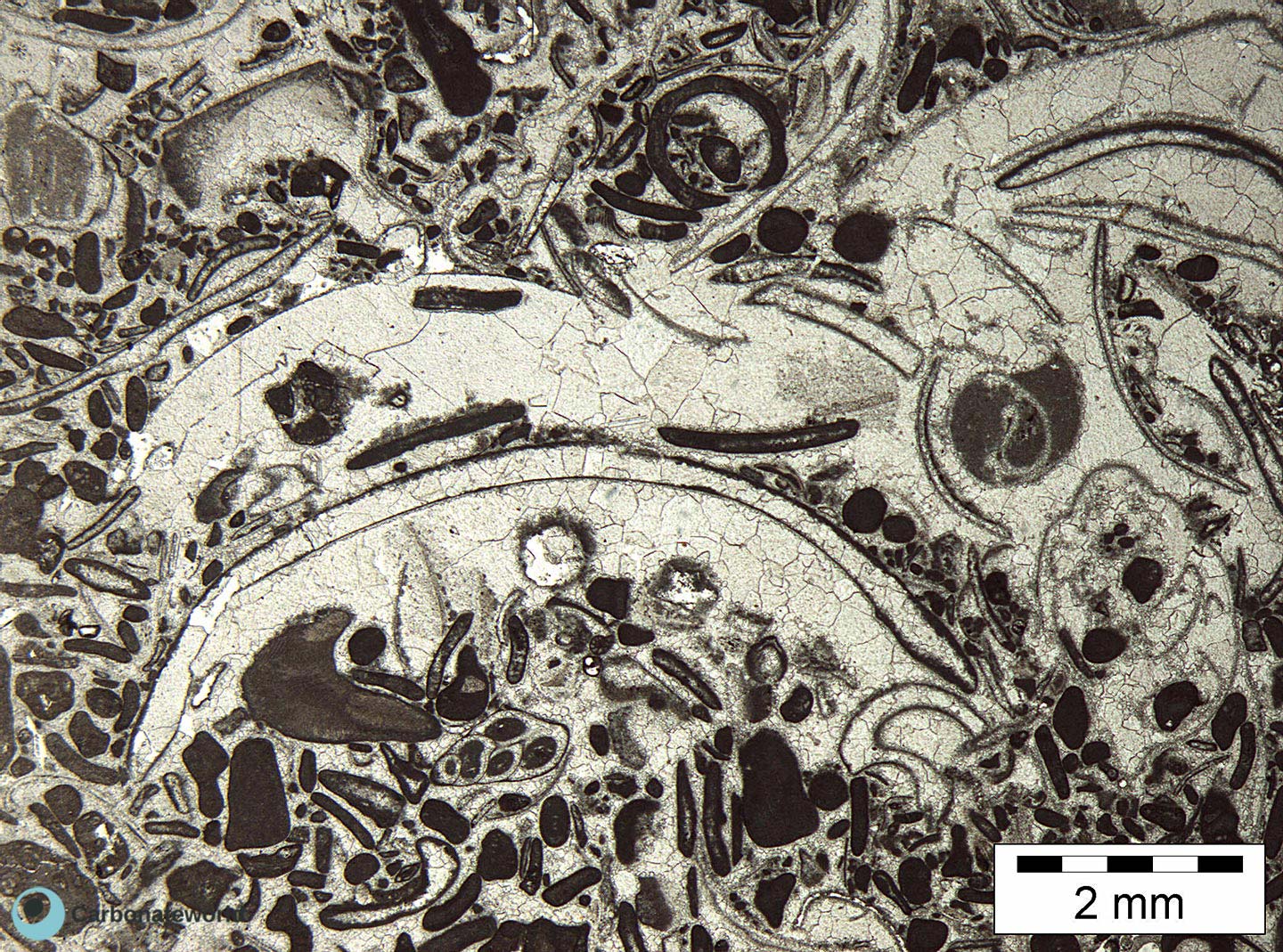

Bivalve micrite envelope

Gastropod
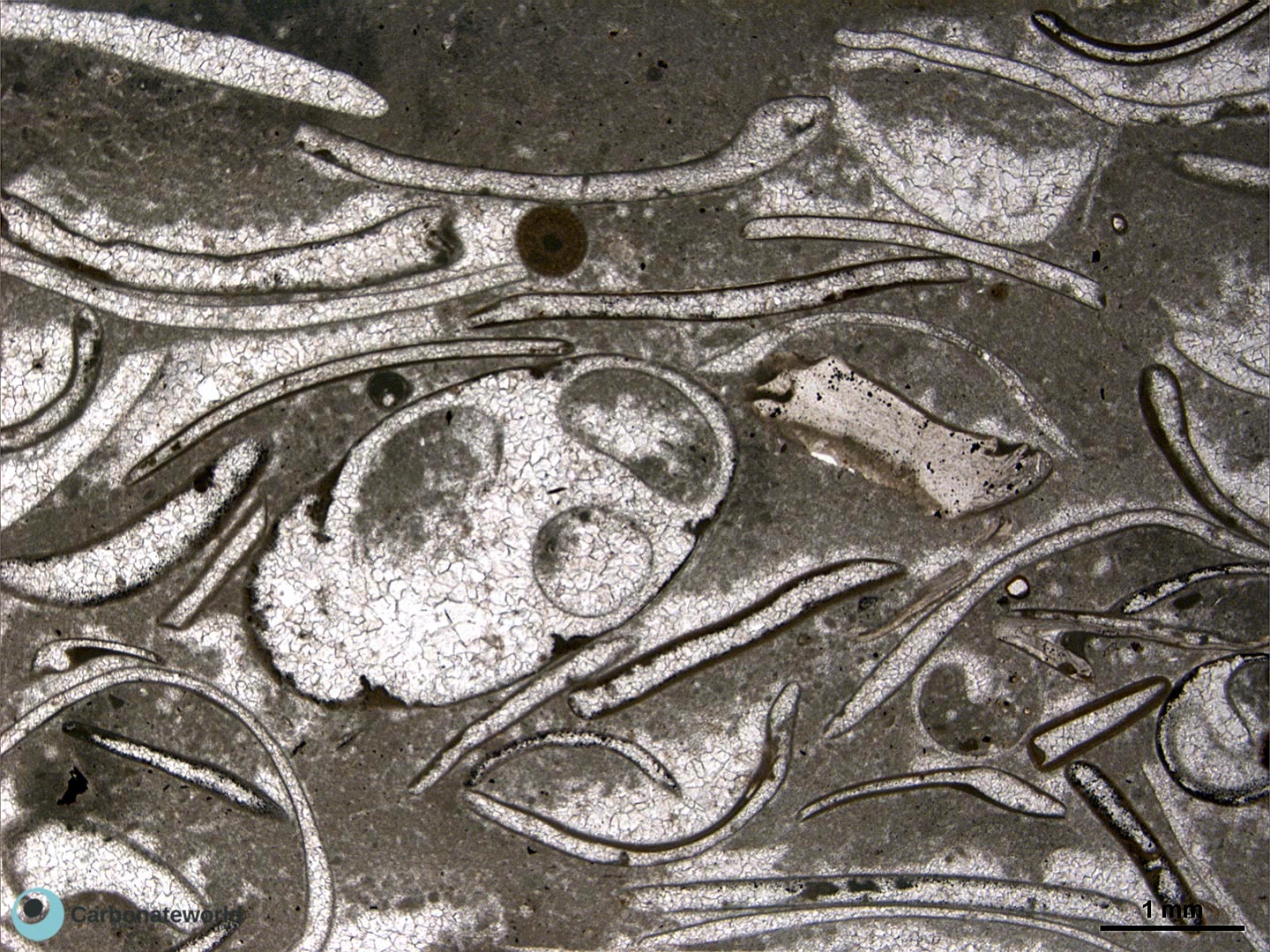

Gastropod

Bivalve micrite envelope
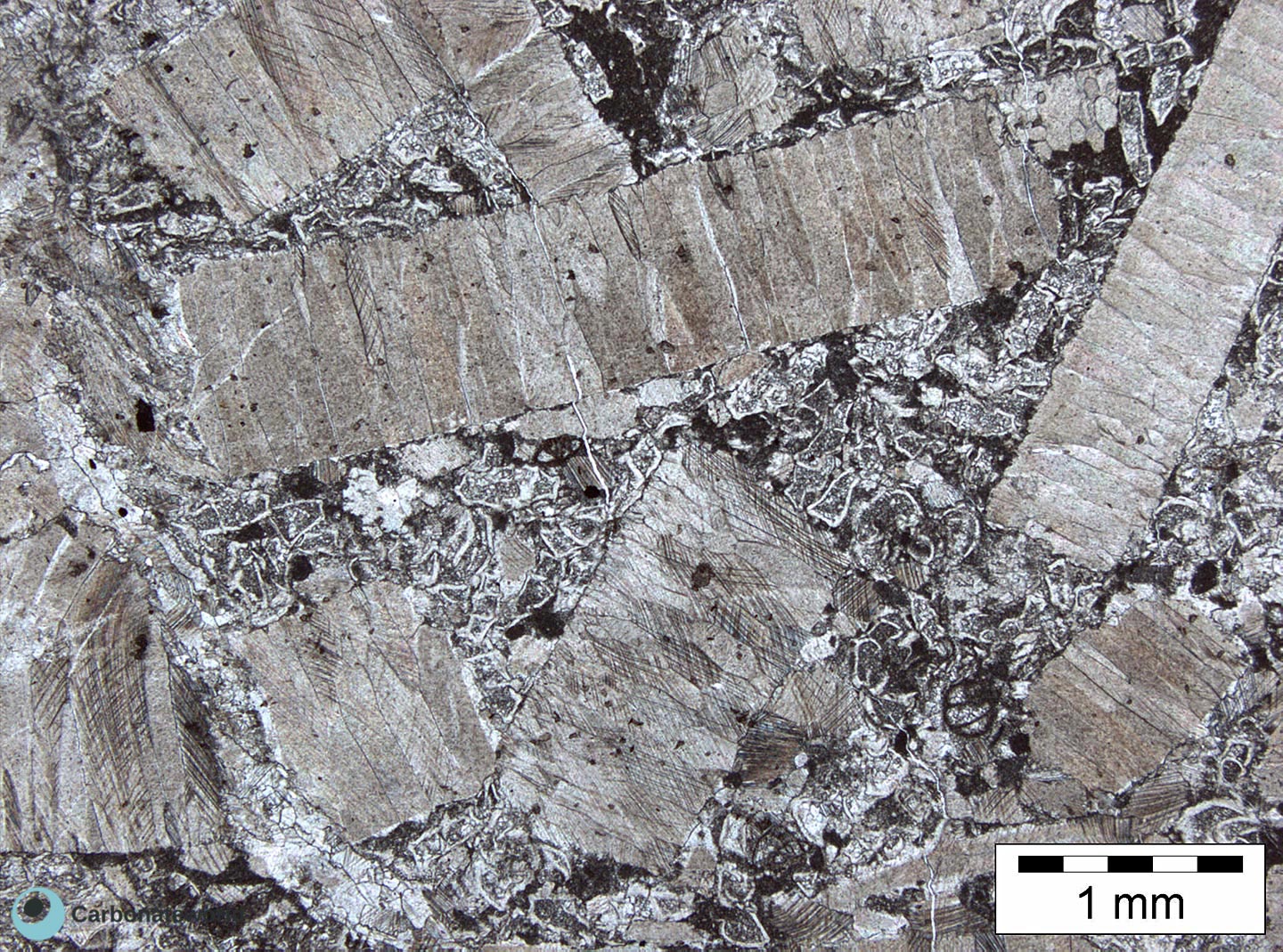

Inoceramus prismatic layer

Globotruncanid planktonic foraminifera
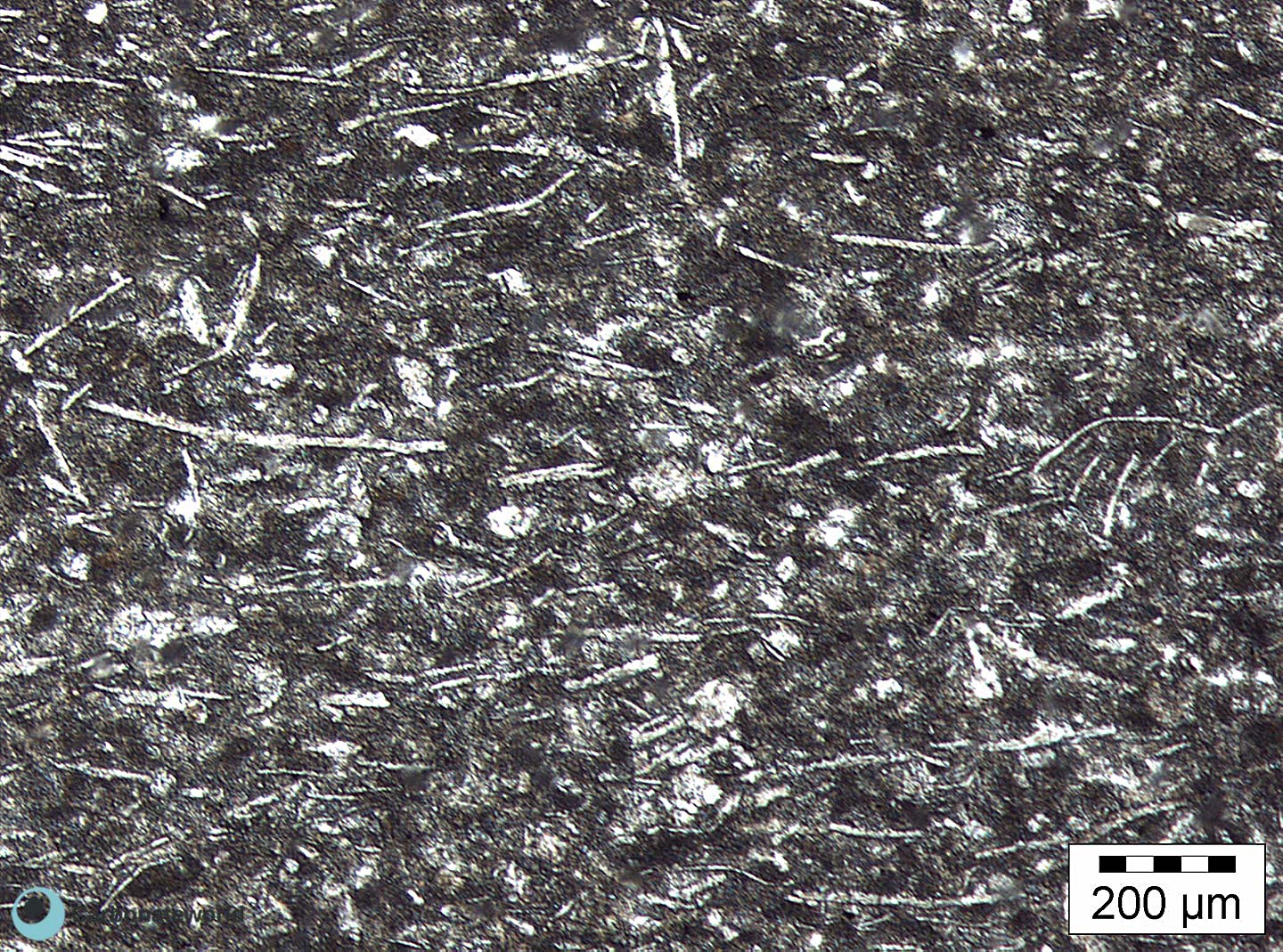

thin-shelled bivalve
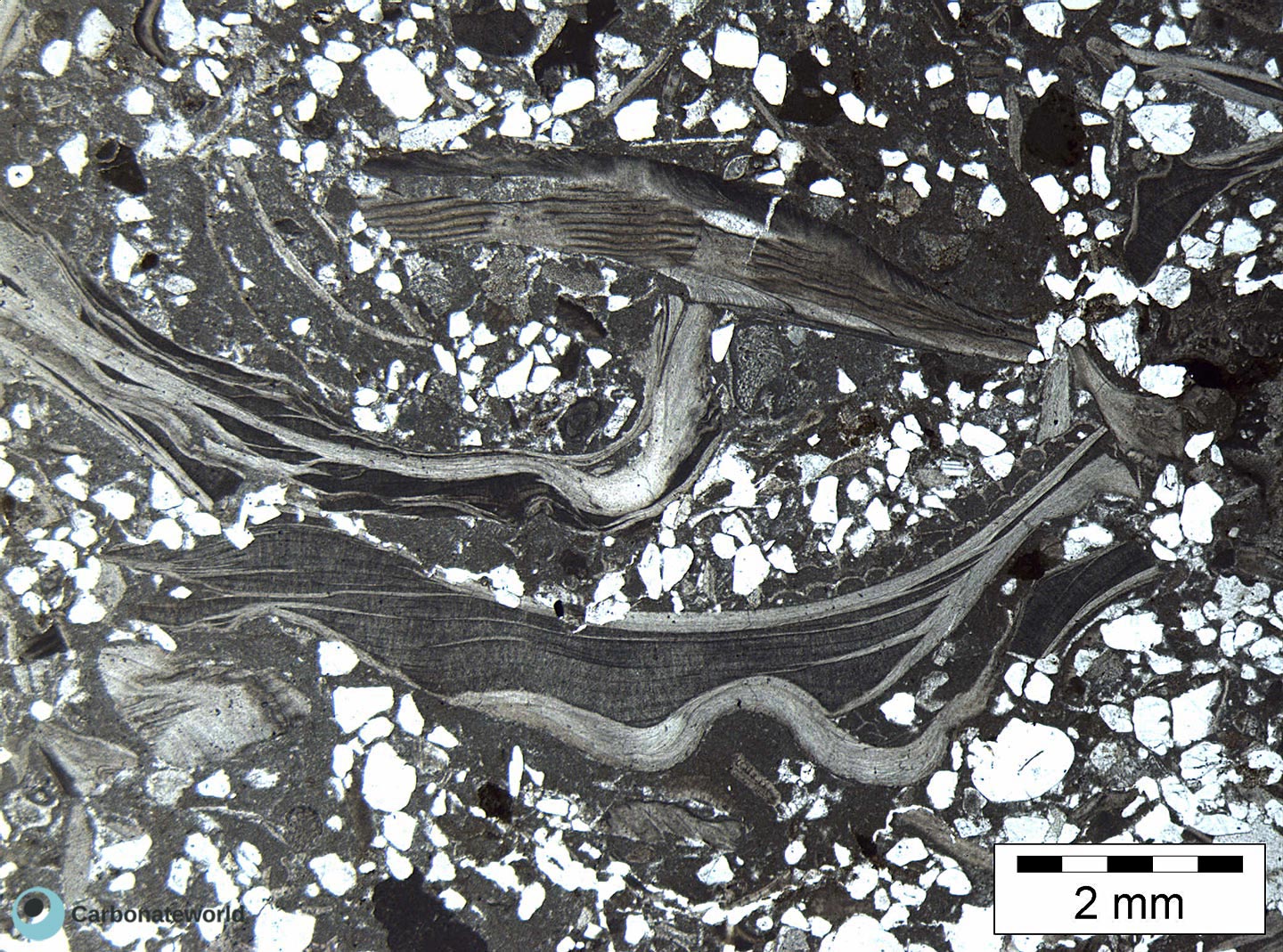

Oyster shell

Detrital quartz sand grain


Lithiotid bivalve